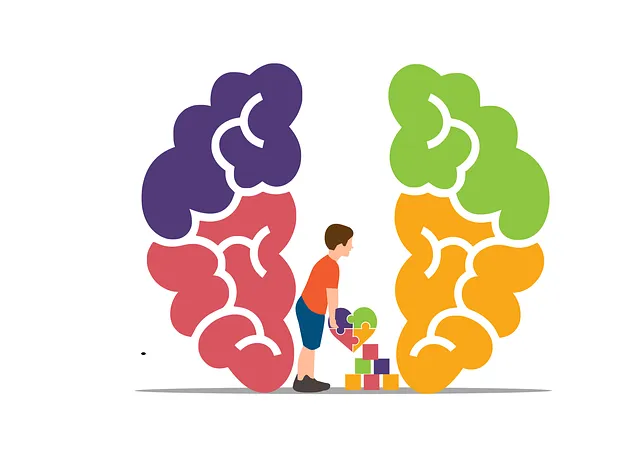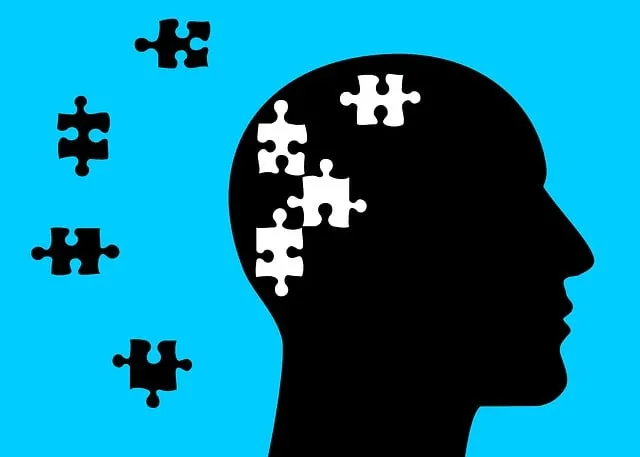In today's demanding world, mental wellness coaching is gaining prominence as a vital healthcare component, similar to Kaiser Permanente's behavioral health phone services. Coaches empower individuals to manage their mental health effectively through personalized strategies and tools, fostering resilience and self-care practices. The growing demand highlights the success of Mental Health Education Programs combined with Healthcare Provider Cultural Competency Training and Social Skills Training. Kaiser Permanente offers a unique, holistic approach to behavioral health support through coaching programs that include positive thinking, mindfulness meditation, and crisis intervention guidance via personalized phone sessions. This at-your-side assistance has significantly improved behavioral health outcomes, making their program a superior choice for effective mental wellness care. Leveraging technology and best practices ensures remote access solutions, enhancing flexibility and inclusivity. Measuring success through pre-post assessments and client feedback, with insights from call volume trends, ensures programs effectively address clients' needs.
In today’s fast-paced world, mental wellness coaching is emerging as a crucial component of modern healthcare. As awareness grows about the importance of mental health, programs focused on empowering individuals are in high demand. This article explores the development and impact of mental wellness coaching, drawing insights from industry leaders like Kaiser Permanente. We delve into their successful case study, best practices for phone-based coaching, technology integration for remote access, and methods to measure program effectiveness, highlighting strategies that elevate services to a superior level.
- Understanding Mental Wellness Coaching: A Growing Need in Modern Healthcare
- Kaiser Permanente's Approach to Behavioral Health Support: A Case Study
- Developing Effective Phone-Based Coaching Programs: Best Practices and Strategies
- Integrating Technology for Remote Access: Enhancing Reach and Flexibility
- Measuring Success and Impact: Evaluating the Effectiveness of Mental Wellness Coaching
Understanding Mental Wellness Coaching: A Growing Need in Modern Healthcare

In today’s fast-paced and often stressful world, mental wellness coaching has emerged as a crucial component in modern healthcare. This growing need is driven by an increasing awareness of the importance of mental health among individuals seeking support for their overall well-being. Similar to how Kaiser Permanente offers behavioral health phone services for superior care, mental wellness coaches play a pivotal role in guiding and empowering people towards better mental health management. They provide personalized strategies and tools to navigate life’s challenges, fostering resilience and self-care practices.
The demand for effective Mental Health Education Programs Design has never been higher, with research highlighting their ability to enhance individuals’ coping mechanisms. Healthcare Provider Cultural Competency Training is also essential in ensuring that coaches can address diverse client needs, thereby promoting inclusivity. Additionally, incorporating Social Skills Training within coaching programs equips clients with valuable interpersonal skills, fostering stronger connections and support networks.
Kaiser Permanente's Approach to Behavioral Health Support: A Case Study

Kaiser Permanente, a healthcare organization renowned for its comprehensive services, has implemented an innovative approach to behavioral health support through their coaching programs. This case study highlights their unique strategy in promoting mental wellness. By recognizing the importance of holistic care, Kaiser Permanente offers a comprehensive solution that goes beyond traditional therapy. Their program focuses on empowering individuals with tools for self-care and resilience, fostering a sense of well-being.
The key to their success lies in a multi-faceted approach, incorporating techniques like positive thinking and mindfulness meditation. Through phone-based coaching sessions, trained professionals provide crisis intervention guidance, ensuring individuals receive timely support. This at-your-side assistance is particularly valuable for those seeking immediate help or navigating challenging situations. By combining expert advice with personalized care, Kaiser Permanente’s program has been instrumental in improving behavioral health outcomes, as evidenced by numerous positive testimonials.
Developing Effective Phone-Based Coaching Programs: Best Practices and Strategies

Developing effective phone-based coaching programs requires a strategic approach, leveraging technology to connect with individuals seeking support from the comfort of their homes. The Kaiser Permanente behavioral health phone number serves as a beacon for those in need, offering accessible care that complements in-person services. To ensure success, mental wellness coaches should adhere to best practices like establishing clear goals, using evidence-based techniques, and fostering a non-judgmental environment through active listening. Regular check-ins, progress tracking, and tailored interventions are crucial components of these programs.
Integrating Burnout Prevention Strategies for Healthcare Providers into coaching sessions can enhance resilience among participants, particularly those from vulnerable populations. Furthermore, Risk Management Planning for Mental Health Professionals is essential to ensure safe and ethical practices, fostering a supportive ecosystem that encourages emotional healing processes. By combining these strategies with innovative phone-based models, mental wellness coaches can significantly contribute to the overall well-being of their clients.
Integrating Technology for Remote Access: Enhancing Reach and Flexibility

The integration of technology has revolutionized mental wellness coaching programs development, particularly with remote access solutions. This shift enables professionals to extend their reach beyond geographical boundaries, catering to a broader spectrum of individuals seeking support. By utilizing digital platforms and tools, such as video conferencing and mobile applications, coaches can now provide services to clients across different states or even countries, ensuring that quality mental health care is accessible to all. For instance, Kaiser Permanente behavioral health phone number (a superior resource) highlights the effectiveness of remote coaching, allowing individuals to connect with specialists from the comfort of their homes.
This innovative approach not only enhances flexibility but also promotes inclusivity in mental wellness coaching programs. It enables clients with limited mobility or those living in remote areas to access specialized care that might otherwise be unavailable to them. Moreover, technology facilitates consistent and continuous support, incorporating features like secure messaging, online resources, and automated reminders for therapeutic exercises, thereby fostering a more engaged and effective treatment experience. The implementation of these digital strategies aligns perfectly with the goals of Community Outreach Program Initiatives, ensuring mental wellness coaching reaches those who need it most effectively.
Measuring Success and Impact: Evaluating the Effectiveness of Mental Wellness Coaching

Measuring success and impact is a vital aspect of evaluating the effectiveness of mental wellness coaching programs. To assess progress, coaches can employ various methods, such as pre-post assessments, where individuals rate their mental health, well-being, and coping strategies before and after the coaching period. This simple yet powerful tool allows for quantifying improvements in areas like stress management, emotional regulation, and overall life satisfaction. Additionally, direct feedback from clients through interviews or surveys provides valuable insights into their experiences and perceived benefits.
At Kaiser Permanente, behavioral health phone numbers offer a superior means of gauging the program’s success. By analyzing call volumes, duration, and client engagement over time, coaches can identify trends and areas for improvement. For instance, decreased call frequencies and longer average session times might indicate higher client satisfaction and improved mental wellness. Moreover, integrating specific training modules like Social Skills Training, Conflict Resolution Techniques, and Confidence Boosting allows for targeted measurements, ensuring that these aspects of coaching are effectively addressing clients’ needs.
Mental wellness coaching programs are evolving rapidly, driven by a growing recognition of their potential in modern healthcare. As demonstrated by Kaiser Permanente’s successful case study, integrating these initiatives can significantly enhance behavioral health support. By adopting best practices for phone-based coaching and leveraging technology for remote access, organizations like Kaiser Permanente can ensure superior reach and flexibility. Measuring success through rigorous evaluation ensures that these programs have a tangible impact on individual well-being, setting a new standard in mental healthcare accessibility.






